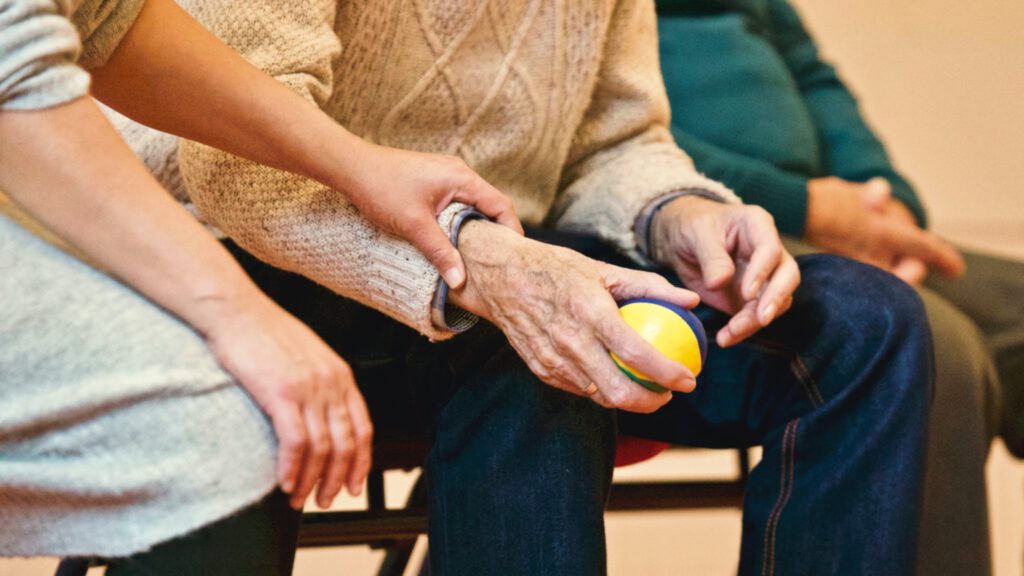How to make an elderly relative feel safe when you’re looking after them at home

Looking after an older relative means plenty of plate juggling, ensuring they attend doctors’ appointments, take their medication, eat well, and so on. But one of the most important parts of caring for an elderly loved one is making them feel safe, especially given the current coronavirus pandemic.
There are myriad ways you can help your elderly relatives feel safe. Here are a few ideas.
Invest in an alarm system
A home security system is an excellent way to make elderly relatives feel safe at home. They can be relatively inexpensive, and even a fake alarm system installed outside can discourage potential thieves casing a property.
As well as alarms, consider installing automatic security lights for the back and front garden. These are surprisingly effective at deterring would-be thieves, alerting homeowners and neighbours of a potential intruder.
In the same vein, you might consider investing in a personal alarm for your relative. These are practical and affordable, with a variety of options open to most budgets. If your loved one falls or is unable to get to a phone, personal alarm systems offer a degree of reassurance and comfort should the worst happen.
Leave notes to visually remind your loved one
As we get older, our memories start to fade. It is a natural process that happens to us all, but for elderly relatives (especially those living alone), it can leave them feeling vulnerable.
It’s easy for elderly relatives to forget simple things: doctors’ appointments, medication, such as where their keys are. But by leaving notes in places where your relative will see them – fridge doors, for instance – you can help them stay in control.
While this is often useful for those who suffer from poor memory due to ageing, it is also helpful for those in the early stages of dementia. However, as their condition worsens, notes will not be as effective.
Encourage positive mental health
Mental health has become a hot topic issue of late, and with good reason. The long-term effects of poor mental health are considerable, and it can cause debilitating health issues if left unaddressed.
It is important to treat ourselves well at all stages of your life, especially during our twilight years, but even more so during the lockdown. For older people, the effects of being indoors with little companionship can take its toll.
Encourage them to engage in activities such as exercise or creative pursuits like painting. These can help build positive habits that foster better mental health as a result.
You could also try discussing mental health with your elderly relative and spot the signs of underlying conditions, such as anxiety or depression. Encourage them to talk about their feelings enables you to better work through them.
Check in with your relative frequently and regularly
Try to check in with your elderly relative as frequently as you can. Whether it’s a phone call or a home visit, by speaking to them as often as possible you will have a better idea of whether they are looking after themselves, and if they are keeping appointments or medication schedules.
It’s important for some people that you make this a routine check-in wherever possible, rather than on an ad hoc basis. This gives your relative a fixed structure to follow, reinforcing a feeling of safety as a result.
When you check in, you ca take a mental note of any potential issues. For instance, look to see if the back door has been left open or your relative failed to take their medication for the day before. Some elderly people are fiercely protective of their independence, and might not offer the full picture for fear of losing their personal autonomy.
Look for in-home carers
If you are unable to visit your elderly relative as often as you’d like, consider in-home care. Hiring someone to visit your relative regularly to cook, clean, and reassure them is a good way to ensure a professional level of care for a loved one when you’re not able to help yourself.
If you can’t afford in-home care, it might be worth considering moving in with your vulnerable relative instead.
This is one of the most reassuring acts one can do to make an elderly relative feel safe at home, but this can be a huge step for each party. Consequently, it’s not something that should be undertaken lightly. If the arrangement doesn’t work, moving out can be a tricky and fraught process.
If you can’t or don’t want to move in with your elderly relative, don’t feel bad about it. It’s not feasible for everyone, but it’s something worth considering should the circumstances arise.
Caring for an elderly relative isn’t always easy, but it’s something many of us might face at some point in our lives. As such, we want our loved ones to feel as safe and comfortable. The tips above are a good start towards ensuring your elderly relatives are able to enjoy their twilight years in peace and quiet.
Kayleigh Alexandra is a writer for Micro Startups, your online destination for everything startup. She’s passionate about hard-working solopreneurs and SMEs making waves in the business world. Visit the blog for your latest dose of startup and charity insights from top experts around the globe @getmicrostarted.
Photo by Matthias Zomer from Pexels

